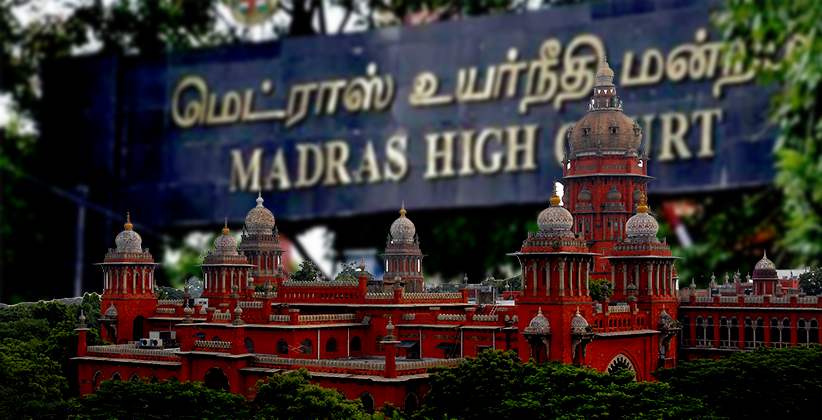Investigating Officer Cannot Be Prosecuted For Malicious Prosecution Upon Accused(s) Acquittal: Madras High Court

The Madras High Court, while recently quashing the accused’s appeal to prosecute the Investigating Officer (IO) for a charge of malicious prosecution upon acquittal, has observed that exposing IO’s to such proceedings would directly interfere with the authority’s independence in conducting an investigation.
“It is true that the court below has issued a summon to the Petitioner to attend an enquiry in order to enable the Court to take a decision on the complaint given by the Respondent. The complaint is given on the basis that the Petitioner has committed an offence under Section 211, I.P.C. If the allegations made in the complaint, even if taken as it is, do not make out an offence under Section 211, I.P.C., there is no requirement for the Petitioner to go through the ordeal of an enquiry before the court below.”, Single Bench of Justice N Anand Venkatesh noted.
In the present matter, an F.I.R. was registered against the Respondent/Accused based on a complaint given by Mr Rajamani & was transferred to the file of the C.B.C.I.D. The Petitioner, who was the then Deputy Superintendent of Police, C.B.C.I.D., investigated the case & thus, the respondent/accused person faced trial before the court for offences under Sections 120B, 307, 450, 451, 384, 506 I.P.C r/w Section 109, I.P.C. On 23.02.2006, the Trial Court acquitted all the accused persons from all the charges. The C.B.C.I.D. filed an appeal against the judgement dated 23.02.2006 before the Madras High Court, which was dismissed. After that, a complaint was filed under section 340 CrPC against the Petitioner (investigator) before the Trial Court by the Respondent/Accused on the ground that the Petitioner committed an offence under Section 211, I.P.C. (False charge of offence made with the intent to injure), and the entire case was a malicious prosecution against the Respondent. Thus, based on this, the Trial Court issued summons to the Petitioner to conduct an enquiry before acting upon the complaint. After that, aggrieved by the summons issued by the court below, the petitioners filed a petition u/s 482 CrPC challenging the summons issued by the Trial Court.
In order to satisfy itself as to whether an offence u/s 211, IPC was made out against the petitioner or not, the Bench listed down the essential ingredients to invoke section 211, IPC which are as follows:
- The complaint must have falsely charged a person with having committed an offence.
- The complainant, at the time of giving the complaint must have known that there is no just or lawful ground for making a charge against the person.
- Complaint must have been given with an intention to cause injury to a person.
Reliance was also placed on Santokh Singh & Ors. v. Izhar Hussan & Anr ((1973) 2 SCC 406)& Perumal v. Janaki (2014) 5 SCC 377.
Further, the Bench relied upon the judgement of the Supreme Court in Iqbal Singh v. Meenakshi Marwah (2005) 4 SCC 370 in which it was observed that offences u/s 195(1)(b), CrPC will only get attracted with respect to a document after it has been produced or given in evidence in a proceeding in any court i.e. during the time when the document was in custodia legis.
“The language used under Section 211, I.P.C. regarding false charge can only relate to the original or initial accusation through which the criminal law was set in motion. Admittedly, it was not the Petitioner who had set the criminal law in motion.”, the Court in this regard noted.
The Court further also observed that to initiate proceedings u/s 340 CrPC, an application is to be made to the Court upon which the Court can initiate an inquiry into any offence referred to in Section 195(1)(b), in respect of a document produced or given in evidence in a proceeding in that Court. Secondly, offences as set out in the complaint have to be made out.
Thus, the Bench while quashing the impugned summons issued to the Petitioner and allowing the petition observed that,
“This Court holds that the offence under Section 211, I.P.C. has not been made out against the Petitioner. The Respondent cannot pick and choose certain observations made by the trial court and this Court, and make it a basis for filing an application under Section 340, Cr.P.C. to punish the Petitioner under Section 211, I.P.C. The grounds for maintaining a suit for malicious prosecution cannot form the basis for filing a petition under Section 340, Cr.P.C. since it has to independently satisfy the requirements of Section 195(1)(b), Cr.P.C.”
Case Title: A Radhika v. Wilson Sundaram
Law Point/Statute Involved: Section 211 of the Indian Penal Code,1860 & Section 195(1)(b) & 340 of the Code of Criminal Procedure,1973
